At home with Gary Lineker: Exclusive interview on Brexit, press regulation and haunting dreams of white coffins
Exclusive: At Lineker's London home, he opens up to Jonathan Liew on pain, politics and the press

Your support helps us to tell the story
From reproductive rights to climate change to Big Tech, The Independent is on the ground when the story is developing. Whether it's investigating the financials of Elon Musk's pro-Trump PAC or producing our latest documentary, 'The A Word', which shines a light on the American women fighting for reproductive rights, we know how important it is to parse out the facts from the messaging.
At such a critical moment in US history, we need reporters on the ground. Your donation allows us to keep sending journalists to speak to both sides of the story.
The Independent is trusted by Americans across the entire political spectrum. And unlike many other quality news outlets, we choose not to lock Americans out of our reporting and analysis with paywalls. We believe quality journalism should be available to everyone, paid for by those who can afford it.
Your support makes all the difference.The ringing of Gary Lineker’s doorbell is met, in the first instance, not by Lineker himself, but by an almighty cacophony of barking, and the fretful scrape of paws on wood. Eventually the door opens to two figures: a large golden labrador called Snoop, and one of England’s greatest ever strikers, pointing accusingly at me.
“Journalist!” he whispers fiercely. “Kill! Kill!”
It’s a joke, but not really. Barnes, a little green west London enclave of riverside trails, inky-dinky pubs and million-pound houses, is the sort of place you go if you fancy the quiet life. Ever since he returned from the 1986 World Cup in Mexico, Lineker reckons, he has sensed eyes looking at him everywhere he goes. Photographers snap him when he pops to the shops. Websites publish spurious stories about his private life. People stop him in the street and ask for selfies.
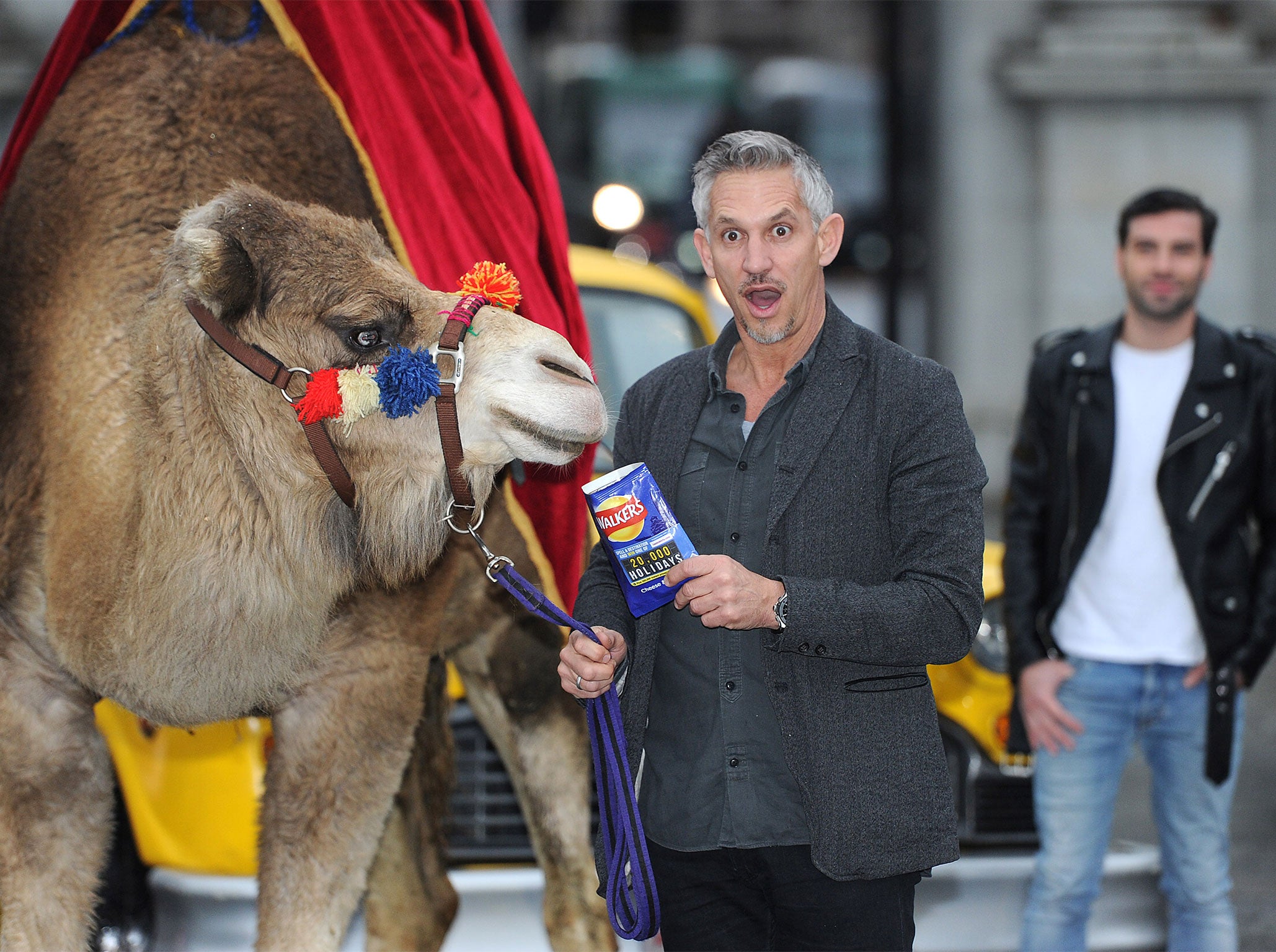
More than 25 years after he played his last game for England, Lineker may still be this country’s most recognisable footballer, and yet over the decades, he has managed to rationalise and normalise the sort of attention that would send most of us round the twist. “It’s been 30 years like that,” he says. “To me it’s normal. If I walked into somewhere and nobody looked at me at all, I might think: this is a bit odd. What’s happened here?”
So this august red-brick house, surrounded by greenery and yet handily placed for the train station, is his escape. And though he technically lives alone after separating from his wife Danielle in 2016, it is rarely quiet. Snoop sees to that. Lineker’s four grown-up children breeze in and out with abandon. He is busy cooking dinner for them when I arrive. A plate of delicious-smelling curry is offered, and reluctantly declined.
A copy of Simon Sebag Montefiore’s book on The Romanovs sits on the coffee table. A giant abstract painting hangs on the wall: originally the floor of an artist’s studio he visited in Paris. The reputation of Lineker as a thinking footballer - one harvested from the very start of his goal-poaching career - is well-earned. And yet interviewing Lineker can often prove an elusive experience: a man smart enough both to answer a question, and to know how not to answer it.
“People come and go: ‘I’m going to find the real Gary’,” he said in a Guardian interview in 2014. “What is the real Gary? Pretty much what you see is what you get.”
Of late, though, Lineker has thrillingly taken off the handbrake. Once a broadcaster whose most noteworthy characteristic was a sort of polished, immaculate beigeness, he has become an unlikely spokesman on everything from Fifa corruption to the refugee crisis to world politics. Though he admits he has voted for many different parties over the years, somehow his views on the EU referendum - broadcast to a Twitter following of over 7 million - have turned him into an unlikely hero of the British left. From ready salted to salt and vinegar in just a few short years. So that seemed like the best place to start.
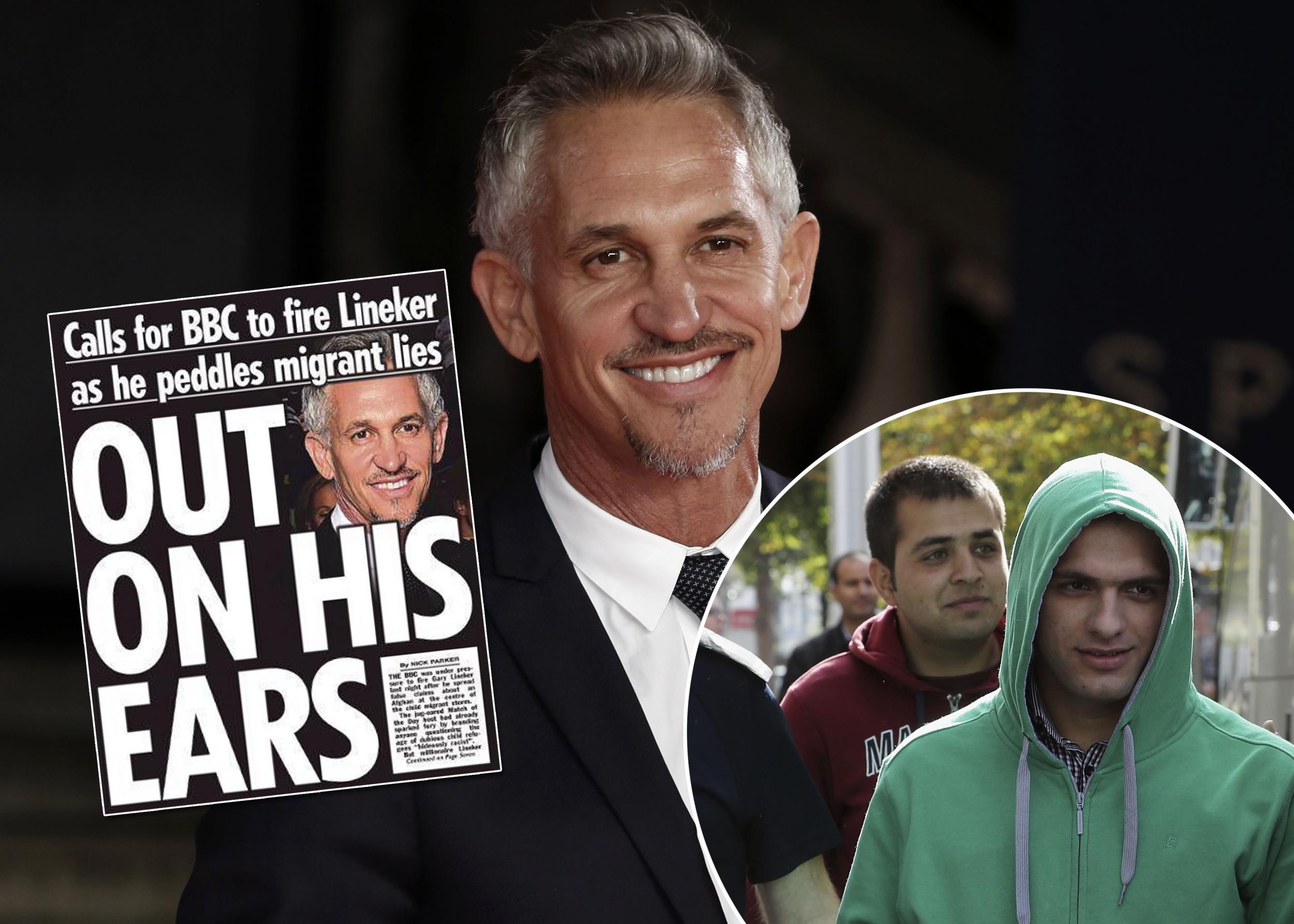
Why are you a Remainer?
I just think the EU’s been pretty good for us. We’ve had peace in Europe for a hell of a long time, and the EU is one of the reasons for that. I think we're better together than we are apart, and divided. And even if something’s not perfect, you're better off trying to affect it from within. You’re not going to be able to do anything about it from outside. There's a lot of downsides, and I can’t think of a positive.
Well, there’s a legitimate left-wing criticism of it, which is that it upholds the existing financial system. Look at the way they treated Greece.
No, of course it's not perfect. But ultimately, what are we going to do on our own? We’re still going to have financial institutions. It’s not going to stop any of the corporations. I just don’t think the answer is to leave. But that’s the way the vote went, and now what you don’t want is a hard Brexit. Then we’re just cutting off our nose to spite our face.
Did you understand the disenfranchisement that led people to vote Leave?
Oh, I totally understand the disenfranchisement. That’s exactly why it happened. People are fed up and need someone to blame, and they’re sick of the metropolitan elite - or whatever you want to call it - and their lives aren’t great. But the people who will ultimately suffer from it are the ones who voted for it - mostly the poor. Which makes me feel sad, because they’re the most easily manipulated. If you've got nothing, let’s try something different, why not? I totally get it. There should never have been a referendum. It’s way too complicated for us to understand. And the politicians trying to sort it out now had no idea how complex it was. So I hope it works out, but...
You’ve said before that you don’t like confrontation. And yet you’ve gone in to bat for this, and obviously invited quite a bit of reaction.
Yeah, that's why I thought long and hard about doing it. I wanted to educate myself first. I wasn’t actually going to come out at all, but the more I read about it, the more I felt it wasn’t the best thing for our country. And it was my generation, probably, that got it over the line. I try not to go on too much about it. There’s a lot of stop-Brexit people, for example. I’m just slightly worried about an even more divided nation if it went the other way again, and that it’ll all get horribly aggressive, and then who knows? The one thing that has really irked me, though, is that those who voted to Remain are almost treated like traitors, which is truly absurd. We care just as much as they care.
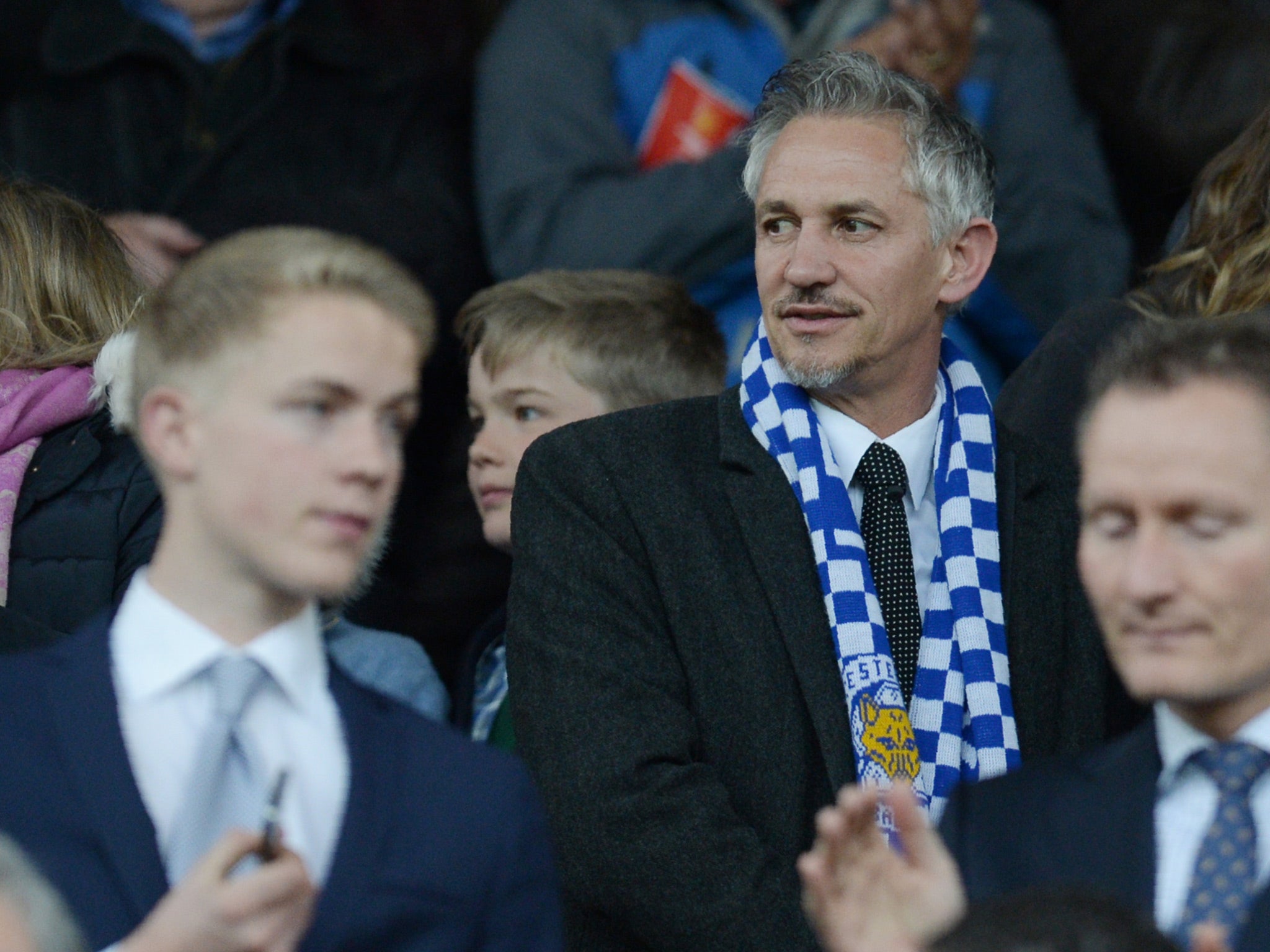
Type Lineker’s name into Google News and 148,000 results come up. At the time of writing, the top result is a Sun story about the “infamous moment he pooed himself at the 1990 World Cup”. Then something from the Daily Mail about Lineker’s son George “stepping out with a mystery woman”. Then something from one of those sport aggregator websites on something he tweeted about Memphis Depay in 2015. Then the Sun again, a story about how Paul Gascoigne “jokingly compared” Lineker to “a ladyboy - and said, ‘I would have s*****d him’.”
Lineker is 57 years old, and this has been his life for more than half of it. It used to be the newspapers, but now it’s the gossip websites, the sport websites, social media, people in the street with camera phones, and the newspapers. He certainly doesn’t mind the attention, and given his various commercial deals it’s hard to argue he hasn’t benefited from fame. And just as the internet has enabled new and sinister forms of intrusion, it has also provided him with the means to fight back.
How do you feel when you see all the tabloid gossip, all the raking of your private life?
There are a lot of positives to fame, or whatever you want to call it. But there are a few downsides, and the intrusion can be one.
I understand the interest, but for me it’s when something’s fabricated, or completely false. Then it’s kind of hurtful, and not fair. That’s where Twitter’s been great. I still do occasionally sue - I’ve just had a successful lawsuit against the Mail. But that’s a long, drawn-out process, extremely expensive, and dangerous should you lose. Whereas now, you can actually put something onto a bigger platform. You can just say: “No, this is wrong. This is a lie.” And then people will jump on your side, and it might make them think a little bit more about it.
Do you think that the press regulation needs to be a little bit stricter?
I've been very pro-Leveson. The problem is that IPSO is completely useless.
It's a whitewash, isn’t it.
It's a waste of time. It's the press supporting the press. I’ve tried that route. Even when it’s something horrendously wrong, they've done nothing about it. It needs regulation from an independent source, no question. And I’m pro-newspaper. I’m pro-journalism. I’ve written myself. There are some great journalists out there, sports journalists, investigative journalists. They do a lot of good. And I think it would help them, because no-one wants to be in a profession where people have no respect for what you do. You can’t tar everyone with the same brush, but that’s the perspective. And if there was really good regulation, it would make it better for everyone.
In speaking out about politics, you've made a few enemies that way as well. Did that give you pause at all?
A little bit. But I've learnt from experience that whether I do it or not, if people can chop me down, they will anyway. Most of the stuff I’ve put out is not that political. I've never said who I voted for. It’s more about social justice, conscience about refugees, stuff like that.
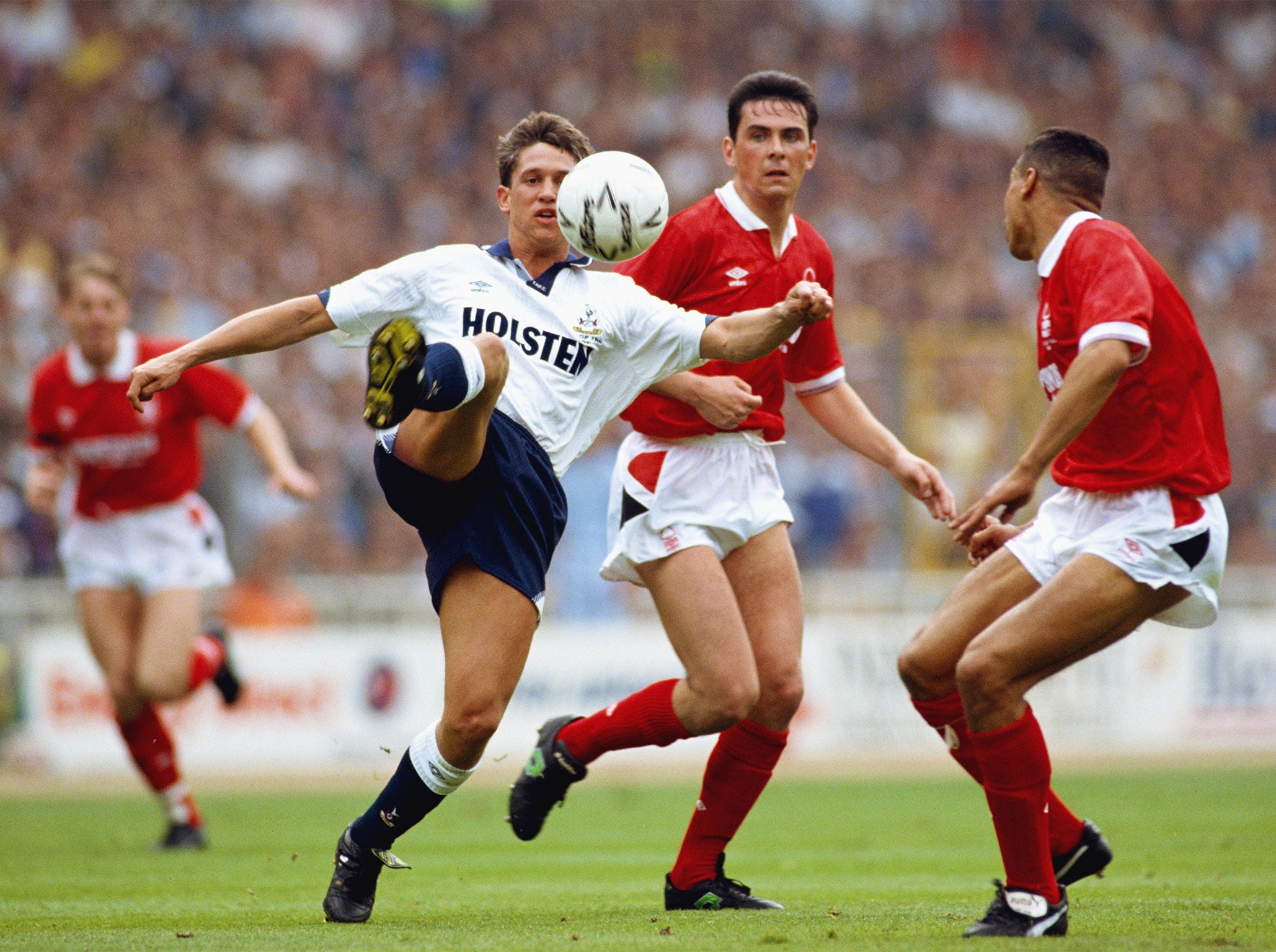
It’s easy to be drawn into thinking Lineker has a wonderful life. And he does, in the grand scheme of things. Not one but two successful careers, fame, money, a nice house, a large family, and as many crisps as he can eat. The transition from playing to broadcasting, via a couple of lucrative seasons in Japan at Grampus Eight in Nagoya, felt almost impossibly seamless: a man whose cards have all landed the right way up.
But in another sense, it was the most tumultuous and traumatic period of Lineker’s life. The end of his playing days at the top level. The end of his England career and the realisation that he would be marooned on 48 goals, one short of Bobby Charlton’s (then) England record. A move across the world. Numerous agonising injuries. And then, two months after he became a father for the first time, his son George was diagnosed with leukaemia.
That must have been an incredibly turbulent period in your life?
Oh, it was brutal. I was at Tottenham at the time, and he took ill. He had a bump on his head, which we thought was a skin thing. We went to the hospital and they said: “No, it's much worse than that. It’s leukaemia.” And I didn't know anything about leukaemia, except that it was blood cancer, and that it was bad. And he didn’t have much chance. Three times, they told us they didn’t think he’d make it through the night.
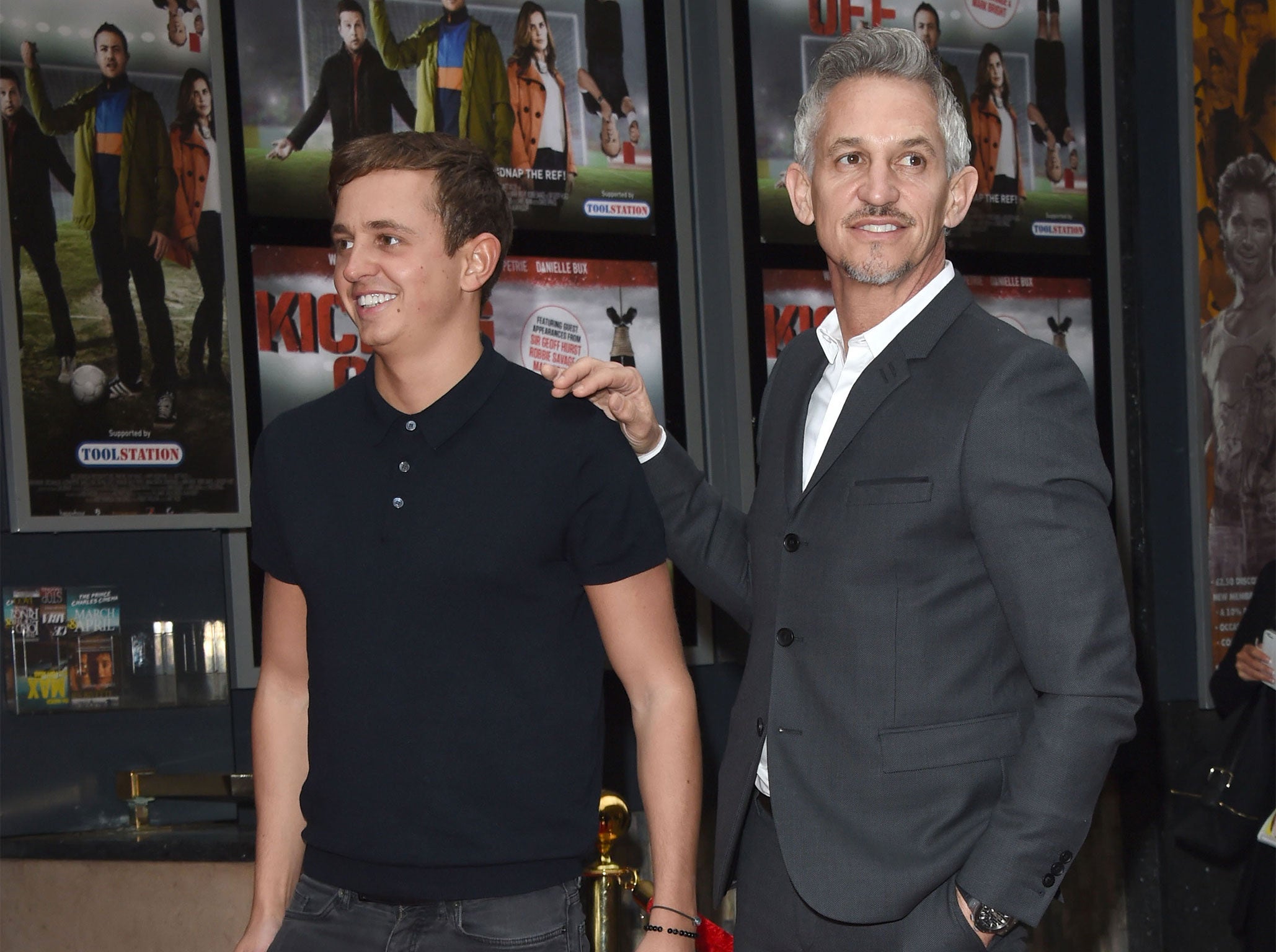
But the thing is, while he did, while he kept getting through, there was always hope. And actually, football helped me more than at any other time. Because being immersed in life at the hospital, just watching this kid be ill, was damn tough. And just to switch off for a bit, play football - it was probably the only time in my life I liked training - was good at that stage.
And then after six or seven months of treatment, he came home. But yeah, it was hard. While there was hope, you were all right. Whereas there were other parents in the hospital whose kids didn't make it. So it was always there. I used to have recurring dreams about a little white coffin. It's a miracle, really.
Did that give you a certain perspective on life?
I think it enhanced it. I’m not stupid enough not to realise that I was having a good life and football wasn’t the most important thing in the world. But at the same time, it makes you think a little bit, of course. He was our first child as well. You didn't spend all day thinking about perspective. You just get through it. And everybody gets through it in different ways. There’s no training for dealing with that kind of situation.
Are you essentially an optimistic person?
Yes, generally. I’d say I’m half-full. I'm not particularly up and down as a person. I think that helps being in my business now, and being a striker as well. It’s an important asset.
So whether it’s Brexit, or politics, or football, do you have an essential belief that people will do the right thing? That things will basically work out?
I’m not sure. I don’t necessarily have a massive amount of trust in anyone. Not politicians: they don’t seem to know what they're doing most of the time. But I generally see the good in someone first, unless they prove to me otherwise.
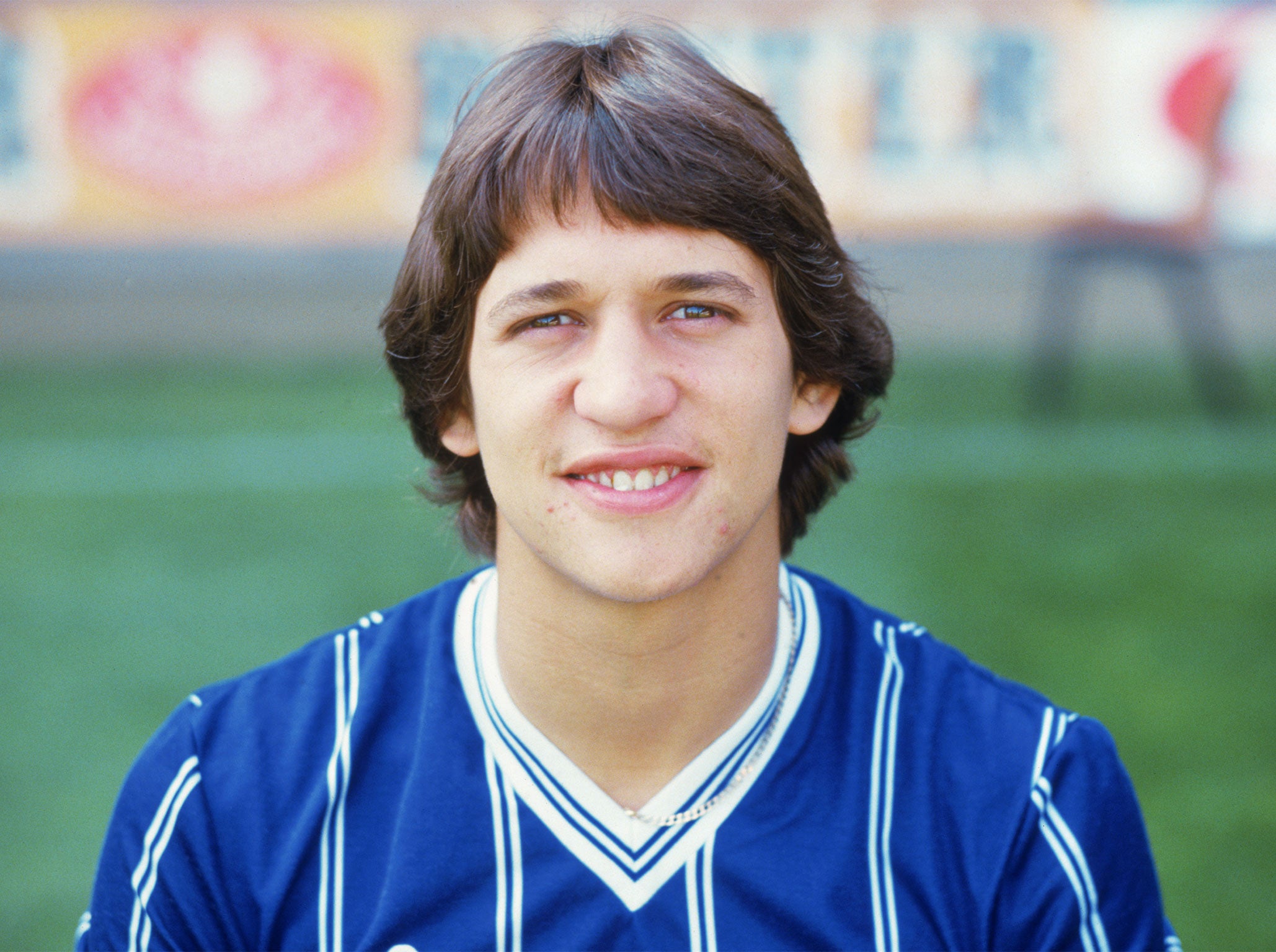
There’s no way to write this without sounding a little bit strange, but as you sit with Lineker it’s impossible not to notice the size of his biceps. This is a guy on the verge of his seventh decade, and he’s built like a Marine. Lineker takes his fitness incredibly seriously. A personal trainer arrives three times a week to put him through his paces. Lineker has had his own state-of-the-art gym installed in the basement, where he pumps iron and runs on the treadmill in the shadow of his Golden Boot from the 1986 World Cup. It is the only footballing memorabilia on display in his house.
And for those of us who have grown up with Lineker as a continuous presence on our television screens, it can be startling to discover how old he really is. Lineker is a month younger than Diego Maradona, who looks one bad cheese sandwich away from the hospital. He’s a decade older than Jacob Rees-Mogg, who records show was born in Victorian Britain and never left. So it seems appropriate to ask this most timeless of broadcasters about the subject of aging.
You’re 57. Do you feel 57?
I don't know what 57 is supposed to feel like.
Do you feel old?
I feel experienced. Mentally, I don’t feel any different. Physically, not bad. I work out a lot. I still train quite hard. But obviously, I retired from football for a reason. My hair’s a bit white, but I’ve still got most of it. But then I see someone else who’s 57 and I think: “Fucking hell, I'm old.” But at the same time, it makes me feel slightly good, the fact that I age reasonably well. My uncle’s in his 70s, and he looks about 40.

How do you feel about the prospect of death?
I'd say if you give me another 20, 25 years of living healthily, thinking healthily, and being physically fine, and I could then just... go, I'd take that all day long. I’d probably disagree when I got there.
What a party that would be, though.
It would be nice. I always thought that if death could give you 24 hours’ notice, it would be quite good. For George Michael, people like that. I bet he didn’t know how loved he was. And then look at all the nice things people are saying now about Arsene Wenger, who everyone hated for fucking years. Yeah, if you knew your own finale, then you could think of a good closing line.
In part two: Lineker on England’s World Cup chances, the art of taking a penalty, corruption in football, why he went to Russia to host Fifa’s World Cup draw, and the day he thought his broadcasting career might be over.
Join our commenting forum
Join thought-provoking conversations, follow other Independent readers and see their replies
Comments